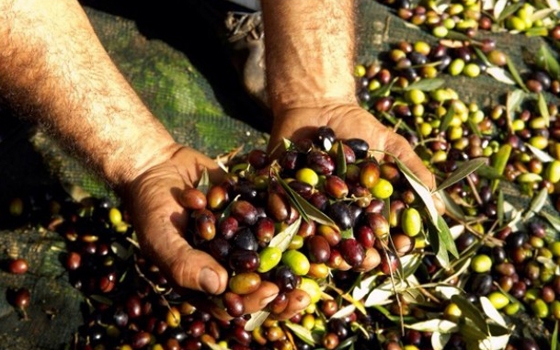Only 25 percent of Saudi Arabia's need for olives is locally produced, said Garman Al-Omari, an olive plant owner in Tabuk. Al-Omari, an expert in olive farming, said there are more than 30 kinds of olives. "Tabuk is famous for its olive crops," he said. The best time to pick olives is between October and December. "The best way to pick olives is by hand to ensure a good yield from the tree in the next season," he explained.
The best olive oil comes when the farmer takes the olives directly to the pressing phase without any delay, said Al-Omari. "Any storage process of the oil will increase the oxidization levels which directly affect the taste and acid levels in the oil," he said. The method used to extract oil from olives is very important, explained Al-Omari. "The hot method for squeezing olives produces large quantities of oil on the expense of quality."
The cold method maximizes the quality of the oil, and its nutrition value is maintained, but the quantity is smaller. He said there is a research center specializing in olives in Jouf. An FAO expert visits the Kingdom regularly to give courses and directions to farmers. "Unfortunately, Tabuk lacks such a center," said Al-Omari. The leftovers of the pressing process to extract olive oil are used as fuel in Europe and Jordan, in addition to the use of the oil in soap manufacturing. Olives, olive trees and wood, and their leftovers are used in animal feedstock, fertilizer and wood works.
Arab News
19 November






















































